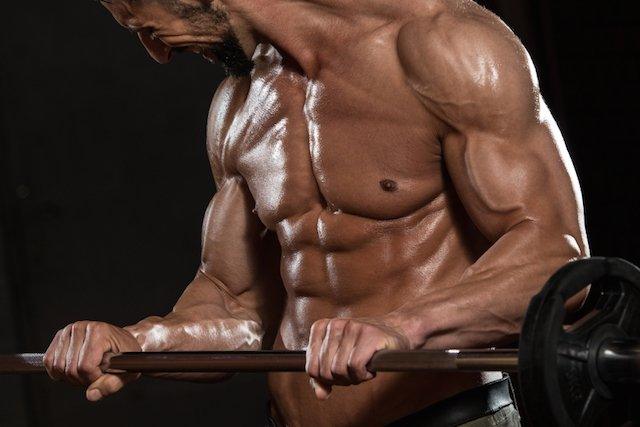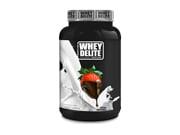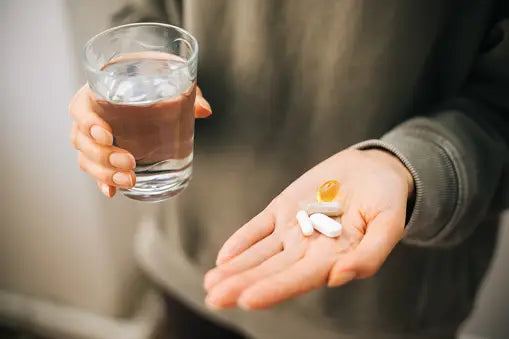

3 Reasons Why All Athletes Need to Use Creatine
Table of Contents
| 3 Reasons Why All Athletes Need to Use Creatine |
By: Robbie Durand
Creatine is a naturally generated endogenous guanidine compound synthesized in the kidneys, pancreas, and liver from methionine, glycine, and arginine and released into the blood. Most creatine is localized in skeletal muscle and stored as creatine phosphate (PCr). CK and PCr play a pivotal role in short-term (only a few seconds) exercise.
Creatine has become the most widely researched ergogenic aid to date, and the research is overwhelmingly clear that creatine not only increases muscle strength but now creatine does what no other supplement can do…creatine lowers myostatin. Myostatin in this nasty hormone that suppresses muscle growth. Many muscle wasting diseases such as AIDS and cancer result in increased levels of myostatin that may be the reason for the muscle wasting. On the other hand, suppression of myostatin results in increased muscle growth.
1.) Creatine Lowers Myostatin
In a study in the Journal of Molecular and Cellular Endocrinology, researchers examined how creatine impacted myostatin levels in resistance-trained men. In a double-blind design, 27 healthy male subjects were assigned to resistance training and creatine supplementation groups. Amazingly, the study found that creatine supplementation added to a resistance-training program amplifies the training-induced decrease in serum levels of myostatin, increasing the effects of exercise on muscle strength and mass. Other studies have reported that ingestion of creatine enhances muscle IGF-1 responses as well in conjunction with increasing satellite cell activation. Just when you think creatine can’t get any better, it does.
| 2.) Creatine Increases Resting Testosterone and Reduces Cortisol |

Another study reported than creatine may also enhance testosterone levels in lifters. Twenty active males were randomly assigned to either a creatine group or placebo group. During each resistance training session, subjects performed three sets × 10-repetitions of 9 exercises that included: Bench press, shoulder press, lat pull down, arm curl, squats, leg press, leg extension, leg curl, and abdominal crunches. The intensity of program was determined at 75 or 85% of one repetition maximum. A minute break between sets of the exercise was allowed for rest. At the end of the study, subjects of the Cr group showed significant increases in testosterone concentrations and decreases in cortisol levels, in comparison with placebo and baseline, after five and seven days of creatine loading. Results of the study suggest that more than five days of creatine supplementation, associated with resistance exercises is sufficient for increasing testosterone concentrations and decrement in cortisol levels. If your not taking creatine, this is the perfect study to get you motivated to take creatine monohydrate.
| 3.) Creatine Reduces Muscle Damage and Soreness |

In the most recent article published in the Journal of Exercise Rehabilitation titled, “Role of creatine supplementation in exercise-induced muscle damage: A mini review” researchers discuss the many benefits of creatine for increasing muscle recuperation. The ergogenic effect of creatine is well-known to improve exercise performance such as explosive muscle power and increased lean body mass after resistance exercise. Several studies have reported that creatine attenuates exercise-induced muscle damage showed that healthy males ingesting creatine beginning five days before exercise until 14 days after exercise improved maximal isometric strength and decreased markers of muscle damage (i.e., creatine kinase) compared with those who consumed a carbohydrate placebo only. Creatine may be a useful dietary supplement for preventing muscle damage and facilitating recovery from high-intensity exercise, which applies to the sports rehabilitation field.
Some potential mechanisms explain the effect of creatine on exercise-induced muscle damage, including the inflammatory response, oxidative stress, calcium homeostasis, and satellite cells activities in damaged muscle.
MUSCLE MEDIA MAGAZINE FOR MEN
The premier source of training, nutrition, supplements, fat loss and health for men.
Bird SP. Creatine supplementation and exercise performance: a brief review. J Sports Sci Med 2003;2:123-132.
Claudino JG, Mezêncio B, Amaral S, Zanetti V, Benatti F, Roschel H, Gualano B, Amadio AC, Serrão JC. Creatine monohydrate supplementation on lower-limb muscle power in Brazilian elite soccer players. J Int Soc Sports Nutr 2014;11:32
Zuniga JM, Housh TJ, Camic CL, Hendrix CR, Mielke M, Johnson GO, Housh DJ, Schmidt RJ. The effects of creatine monohydrate loading on anaerobic performance and one-repetition maximum strength. J Strength Cond Res 2012;26:1651-1656
Rosene J, Matthews T, Ryan C, Belmore K, Bergsten A, Blaisdell J, Gaylord J, Love R, Marrone M, Ward K, Wilson E. Short and longer-term effects of creatine supplementation on exercise induced muscle damage. J Sports Sci Med 2009;8:89-96.
Veggi K FT, Machado M, Koch AJ, Santana SC, Oliveira SS, Stec MJ. Oral creatine supplementation augments the repeated bout effect. Int J Sport Nutr Exerc Metab 2013;23:378-387.
Saremi A, Gharakhanloo R, Sharghi S, Gharaati MR, Larijani B, Omidfar K. Effects of oral creatine and resistance training on serum myostatin and GASP-1. Mol Cell Endocrinol, 2009 Dec 22.
Deldicque L, Louis M, Theisen D, Nielens H, Dehoux M, Thissen JP, Rennie MJ, Francaux M. Increased IGF mRNA in human skeletal muscle after creatine supplementation. Med Sci Sports Exerc, 2005 May;37(5):731.
Brilla LR, Haley TF. Effect of magnesium supplementation on strength training in humans. J Am Coll Nutr. 1992 Jun;11(3):326-9.
Candow DG, Chilibeck PD, Burke DG, Mueller KD, Lewis JD. Effect of different frequencies of creatine supplementation on muscle size and strength in young adults. J Strength Cond Res. 2011 Jul;25(7):1831-8.
Cinar, V., Polat, Y., Balaci, A., Mogulkoc, R. Effects of Magnesium Supplementation on Testosterone Levels of Athletes and Sedentary Subjects at Rest and after Exhaustion. Biological Trace Element Research. 2011. 140, 18-23.
Arazi, F. Rahmaninia, K. Hosseini, A. Asadi Effects of short term creatine supplementation and resistance exercises on resting hormonal and cardiovascular responsesScience & Sports, , Available online 4 February 2015,

















